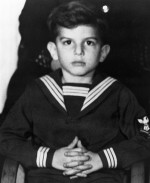Column Name
Title
In August, there was an outpouring of grief for Marvin Hamlisch, who died quite suddenly after a short illness at age 68.
Body
Few testimonials failed to mention that Hamlisch was a graduate of Juilliard (Pre- College ’63). Fewer mentioned what a tireless friend this songwriting phenomenon had been to the School over the years.
Though he was one of the youngest students ever admitted to the Preparatory Division, as it was then called (he arrived in the spring of 1951, just before turning 7), Hamlisch might not have seemed like an obvious candidate for a benefactor in early years. A prodigy with perfect pitch who played “Goodnight Irene” in multiple keys for his audition, he didn’t feel like he wanted to—or could—be the next Horowitz. He loved the piano but missed playing ball. He routinely threw up before the seminannual juries that would allow him to keep his scholarship, though he always passed and remained at the School for 13 years. (He did appreciate the scholarships: in 2000, the Marvin Hamlisch Scholarship in Composition was established, and his wife, Terre Hamlisch, asked that contributions in his honor be given to the Juilliard scholarship fund.)
Though his parents wanted him to have a classical career—and his Juilliard classmates wanted that for themselves—Hamlisch told The Journal in 1999 that even at age 7, while he knew that he had a great ear and loved making music, he didn’t want to be a classical musician. So at one point, inevitably, he asked his father Max, who was an accordionist, why he needed all these Juilliard classes if he wanted to write show tunes. “My father had a great answer, and I think it was pivotal in my life,” Hamlisch recalled. “He said, ‘If you want to be a composer, that means you’re going to have to show your songs to somebody. If you’re going to show your songs, you want to be able to play them in a way that is the best that they can be heard. So the reason you’re taking all this music at Juilliard and learning all this is, if nothing else, to be able to play the piano so well that when you show off your song, it sounds like an orchestra.’”
And Hamlisch’s teachers, while tough, were supportive, too. In 2006, he told The Journal that his principal teacher, the late Edgar Roberts (B.S. ’49, M.S. ’49, piano, faculty 1946-2002) “kept teaching me Bach and Beethoven, knowing full well that eventually I would use what I learned to play Rodgers, Porter, Berlin, and even Hamlisch. [He] made it possible for me to have the career I have had.”
In 1986, Hamlisch returned to Juilliard for two years to teach a Graduate Studies course called Introduction to American Musical Theater. In the 1999 interview he recalled, “I started the course by saying, ‘Now, you want to be the first violinist for an orchestra, [but] you don’t get it. What next? Do you take a gun and shoot yourself because you went to Juilliard and they got you ready for this job, and this job does not exist?’” he recalled. “Music to me is a wonderful thing because you get to meet people and say things musically. And to do that, you have to be ready; you have to have learned things. To me that’s what Juilliard is about. It prepares one for a career in music, not just for a career in ‘serious stuff.’ And I think it’s very important that students understand that, if they don’t get the job that they hoped they would get, if they don’t become the soloist that they really wanted to be, that that doesn’t mean it’s the end of a career if they’re really serious about music. If you’re really serious about music, there’s lots of other things you can do.”
Hamlisch of course realized his dream and then some, composing many of the great show and pop tunes of the late 20th century (“The Way We Were” and “Nobody Does It Better” among them) and garnering Tonys, Emmys, Oscars, and a Pulitzer (for his groundbreaking show, A Chorus Line) along the way. He was an amazing person whose life ended all too soon.





